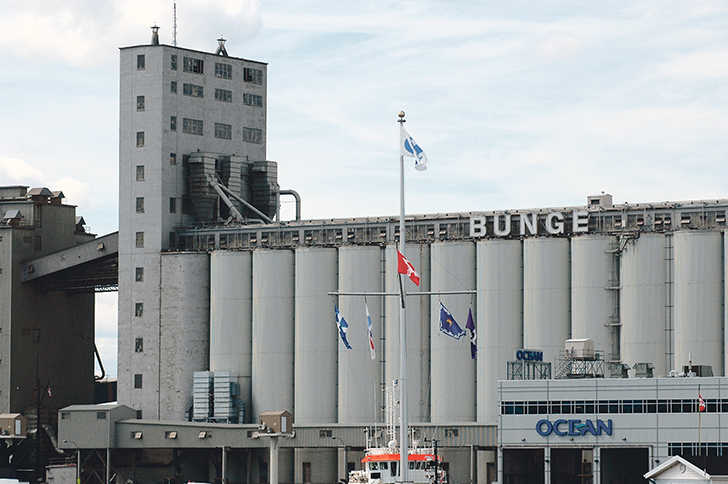CHICAGO, Ill. (Reuters) — Bunge Ltd.’s sweeping plans to overhaul its business and cut costs may not be enough to compensate for weak earnings and could still leave it vulnerable to a new bid from diversified rival Glencore PLC.
Glencore’s current agricultural holdings include Viterra.
Bunge is a part owner of G3 Canada and has five oilseed crushing plants in Canada.
Bunge, the smallest of the listed global grain traders, rebuffed a bid from Glencore in May, but its admission July 19 that second quarter earnings would disappoint has opened up the possibility that Glencore might make another approach, analysts said.
Read Also

Russian wheat exports start to pick up the pace
Russia has had a slow start for its 2025-26 wheat export program, but the pace is starting to pick up and that is a bearish factor for prices.
It would be Bunge’s second consecutive weak quarter after first quarter profit fell 82 percent.
Bunge said it would cut costs and restructure its global operations in response to tough market conditions.
It expects its latest plans would reduce overhead costs by US$250 million once the plan is fully implemented by the end of 2019.
“To the extent that they underperform expectations, it’s more likely that someone will look to acquire them or do some sort of transaction with them,” said John Rogers, senior vice-president at Moody’s.
If Glencore, whose market capitalization is more than five times Bunge’s $11 billion, does make a second attempt and is successful, it would be the industry’s largest shakeup in decades and redraw the global food supply chain.
“The Glencore bid has made companies across the agribusiness space look at their assets in a new light, with a focus on return on invested capital,” said Farha Aslam, an analyst with Stephens Inc.
Global grain trading has long been dominated by Bunge and its three main rivals — Archer Daniels Midland Co., Cargill Inc. and Louis Dreyfus Corp. — which typically make money by buying crops locally from farmers and shifting them to global buyers. They own capital intensive assets such as warehouses, ships, barges and processing plants.
However, the landscape has changed dramatically in the last four years as bumper harvests have kept grain prices low and crimped trading profits.
The big four traders have taken steps to diversify, selling underperforming assets and buying businesses that offer higher margins.
Glencore’s move has stepped up the push for change and could herald a shakeup similar to the transformation of the agrichemicals industry, where six leading players are merging into three giants in deals totalling around $240 billion.
Dow Chemical and DuPont are merging, China’s ChemChina will buy Syngenta and Bayer has snapped up Monsanto.
It was Bunge’s own chief executive officer, Soren Schroder, who in May suggested consolidation among the grain traders was coming — and even said his company could lead it.
Glencore, best known in metals and energy trading, has so far been one of the most active players, setting its sights on expanding its agricultural commodities business. It pursued Louis Dreyfus’s grains business in recent years but failed to strike a deal.
The big traditional companies are also facing stiffer competition from players such as China’s COFCO Group, which recently scooped up the agribusiness of Singapore-listed Noble Group and Dutch grain trader Nidera, and Japanese trading house Marubeni Corp., which bought U.S. grain handler Gavilon in 2012.
However, COFCO is likely to sit out the industry consolidation as it integrates recent acquisitions.
Privately held Cargill is two years into a restructuring and confident it can take part in the shakeup to come.
It launched a restructuring effort in late 2015 and has already sold $700 million of assets and made strategic investments of $1 billion, including fish feeding and chocolate.
Its latest quarterly profit was sharply higher than a year ago, suggesting the changes are bearing fruit.
“If our profitability continues to perform well, we just create more room for acquisitions,” said Marcel Smits, Cargill’s chief financial officer.















